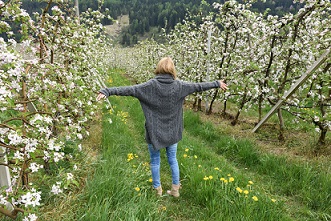A new approach to managing local ecosystems

Related topics
Agriculture & Forestry Environment & climate action Innovation Belgium Denmark Finland France Germany Hungary Italy Netherlands Portugal Romania Slovak Republic Spain United Kingdom Environment Food security, sustainable agriculture and forestry, maritime and martime inland water research and bio-economy Norway India Kenya Argentina Brazildate: 23/09/2015
Project: OPERATIONALISATION OF NATURAL CAPITAL AN...
acronym: OPENNESS
See also: CORDIS
Humans benefit from ecosystems in many ways – through the provision of clean water, the decomposition of waste and the pollination of crops by bees and other insects, for example. These direct contributions of ecosystems to human well-being are known as ‘ecosystem services’. The term ‘natural capital’ refers to ecosystem elements – including soil, air and water – that directly or indirectly produce value for people.
Despite improved understanding of the links between ecosystem health, ecosystem service provision and human well-being, ecosystem services and natural capital are still hard to apply operationally to policy and management problems.
The EU-funded OpenNESS project seeks to address this by developing new tools, methods, knowledge and good practices that can be applied to land use planning or by businesses. A new online reference source is developed to offer easy access to the results.
Real world analysis
Launched in December 2012, the project has successfully initiated 26 case studies, all of which involve local actors. Case studies cover urban areas, forests, mixed rural countryside, coasts and wetlands and address questions ranging from energy use, water management, food production and land use planning.
This multi-scale case study approach is central to the project’s objective of grounding ideas and theories on real-world observations and analysis.
“Partners in Brazil are currently testing opportunities for operating ecosystem services involving bioenergy production and native vegetation areas in the São Paulo sugarcane belt,” says project coordinator Eeva Furman, director at the Finnish Environment Institute SYKE, Finland. “The work includes workshops, interviews with farmers, meetings with decision makers, public opinion surveys and pollination experiments. Up to now some 21 ecosystem services have been identified, 11 of them in forests.”
Making results available
Results from these case studies will translate into applicable tools, methods and information, all of which will be made freely available on the Oppla platform, an online resource developed in cooperation with the EU-funded OPERAs project.
“Oppla will empower European communities to improve natural resource management for human well-being,” says Furman. “This online resource is expected be available before the end of 2016.”
The project’s guidance on the concepts of ecosystem services and natural capital is already available.
“There are 16 synthesis papers currently available on the project website, which explain various concepts such as non-monetary valuation, human well-being, good governance and competitiveness,” says Furman. “In addition, we have produced two policy briefs, one of which is on nature-based solutions and ecosystem services, and several scientific papers, all mentioned in the website library.”
As part of their work the researchers have identified 20 key EU policies that stand to benefit from the project's findings. These include the Biodiversity Strategy to 2020, the Water Framework Directive and the Renewable Energy Directive.
The project, which is scheduled for completion in May 2017, also aims to help integrate the concepts of ecosystem services and natural capital into current land-use practices and forest management processes, in Europe and around the globe.
Flowers are important to ecosystems
© Ben Delbaere
Read an article in Horizon Magazine
